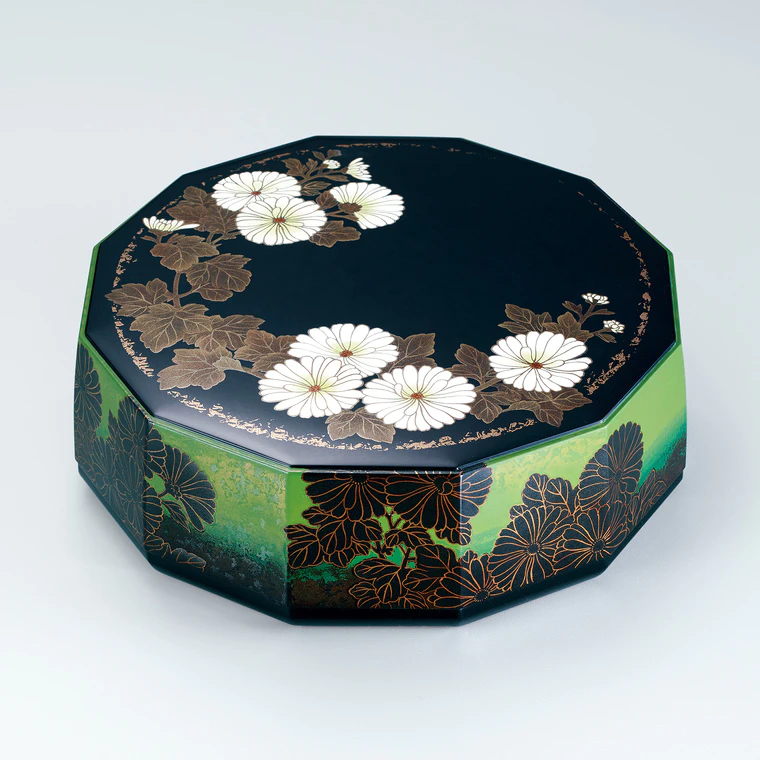Container for sweets with chrysanthemum design in Jōhana makie.
H 8.4 x W 24.8 x D 24.8 cm,Year.2021Jigoemon Ohara XVI
1979 -- Lacquerware
- Awarded 5 times at the Japan Kōgei Assoc. Exhibition
-
Price Range
$1,500 - 36,000
Info
The prices of the artworks on Gallery Japan are determined by the artists themselves and are published directly on the website.
close
About the Artwork
Generations of successors of the Jigoemon name have developed their own expression and techniques in the aesthetics of the chrysanthemum pattern.
Description
-
CategoryLacquerware
-
Materials
-
DimensionsH 8.4 x W 24.8 x D 24.8 cm
-
Year presented2021
-
RarityUnique
-
Paulownia BoxIncluded
-
Artist SignatureSigned (name of artwork, paulownia box)
Techniques Used
Urushi-e
Urushi-e (“lacquer pictures”) is a decorative technique that consists of motifs painted in colored lacquer. Urushi-e is the oldest and most fundamental decorative lacquer technique.
Maki-e
Maki-e (literally “sprinkled pictures”) is a representative lacquerware technique that originated in Japan around 1,200 years ago. Maki-e is done by painting lacquer motifs on the surface of a piece using a fine brush and then sprinkling gold powder onto the lacquer before it hardens, producing luxurious decorations.
Lacquering
Lacquering (kyūshitsu) is the art of applying lacquer to a substrate using spatulas or brushes. The technique includes a range of processes, from reinforcing the substrate with cloth to building up the foundation and applying the middle- and top-coats. The final coat can be left as is (nuritate), polished with charcoal to a high-gloss finish (roiro shiage), or given one of several hundred alternative (kawarinuri) finishes. Lacquer application is known for both its technical difficulty and richly expressive qualities.
Selected exhibitions
- The 68th Japan Traditional Kōgei Exhibition (2021)
- Selected
Please feel free to contact us to commission work, check artworks available for purchase etc.

